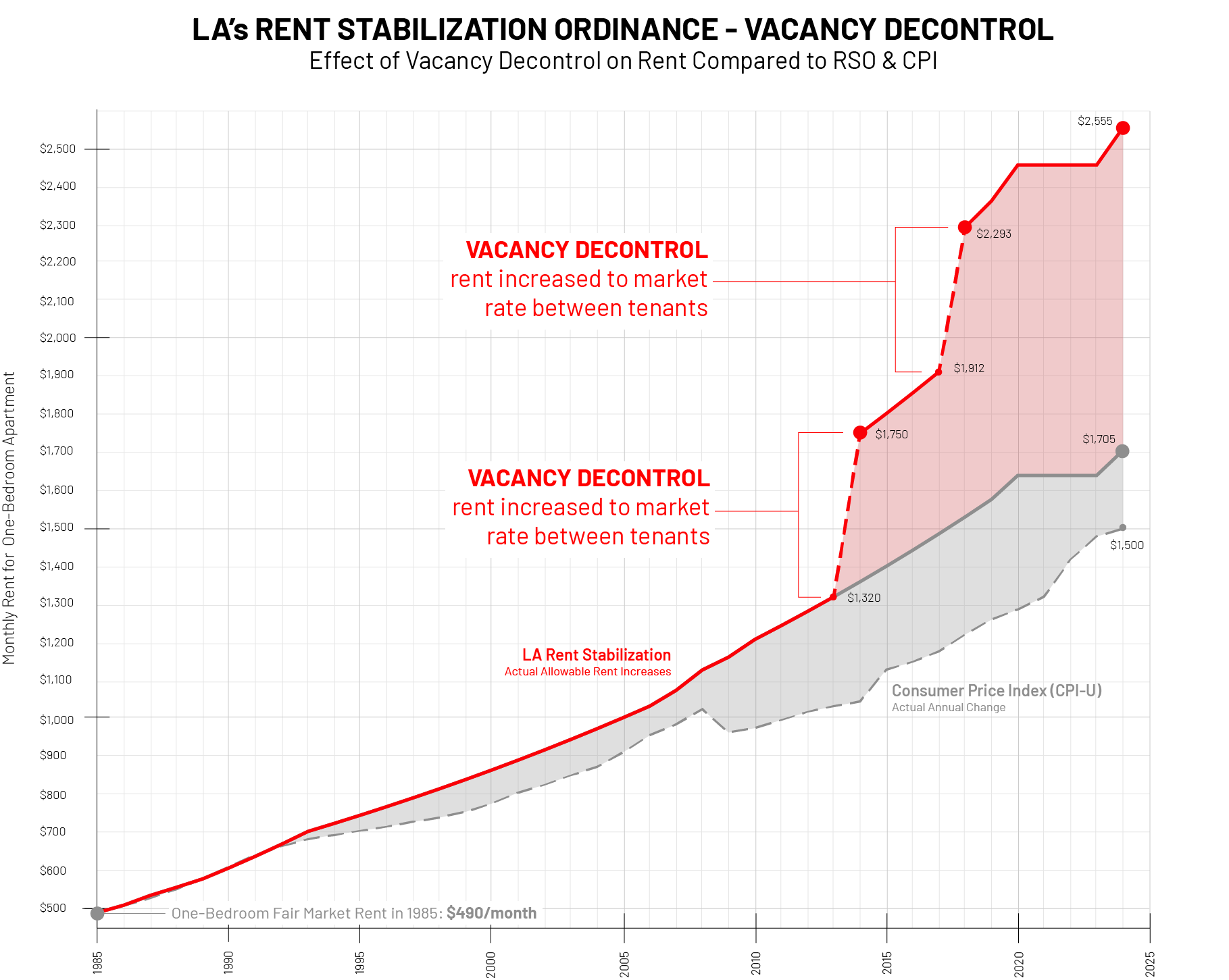
LOS ANGELES RENT IS OUT OF CONTROL
The rent is too high! Tell City Council we need a stronger LA Rent Stabilization Ordinance (LARSO)
Scroll down to learn more!
Background Info
-
The "Rent Stabilization Ordinance" is the rent control law in the City of Los Angeles. It covers about 70% of renter-occupied units in the city.
It applies to buildings constructed before Oct 1, 1978, and only applies to those with two or more units on the same property (apartments, condos, duplexes, etc. but unfortunately not single family homes).
-
The RSO sets a formula for allowable rent increases per year which is tied to the Consumer Price Index (CPI), a measure of inflation.
Every year LA sets the annual allowable rent increase for RSO units by rounding CPI to the nearest whole number, and limiting allowable rent increases to a range between 3-8% each year. So for example:
If CPI is 5.3% then the allowable rent increase will be rounded down to 5%.
If CPI is 5.5% then the allowable rent increase will be rounded up to 6%.
If CPI is 10% then the allowable rent increase will be capped at 8%.
If CPI is 1.2% (or is negative) then the allowable rent increase will still be as high as 3%.
This sets the base allowable rent increase rate, and landlords are allowed to add an additional 1% each for gas and electric utilities if they are included in the rent. (This is why allowable RSO rent increases for Feb 1, 2024 are 4% for rent alone, and up to 6% if utilities are included.)
The bottom of the range, the 3% “floor” does not force any particular landlord to raise the rent. Rather, it forces the city to allow landlords to raise the rent every year, regardless of the rate of inflation if the landlord chooses to do so. It provides landlords with a minimum guaranteed increase in their passive income, if they want it.
-
In March 2020, as an emergency pandemic protection, all RSO rent increases were put on hold until February 1, 2024. (That means if you live in an RSO unit, you should not have received a rent increase since 2020.) And while this alone did not solve the housing crisis, it did prevent a much worse disaster from taking place. That freeze expires one year from the declared end of the pandemic, which means it expires on Feb 1, 2024. If you live in an RSO unit your rent might go up on that date.
-
It requires landlords to register their rental units.
Allows evictions only for specific legal reasons.
Requires the landlord to pay tenant relocation assistance money for certain types of evictions.
Requires the landlord to provide tenants with a list of their rights prior to a “Cash for Keys” buyout.
Requires landlords to pay interest on all security deposits held for at least one year for their tenants.
Learn more at: LAHD RSO Site
Enter your address at this link, then look to the left under the “Housing” drop down. Look for the “Rent Stabilization Ordinance” field to indicate “Yes” or “No”.
LA’s RSO currently allows these rent increases:
Problems with the RSO
Three Problems with LA’s RSO Annual Rent Increase Formula
The rent is already too damn high. Rent hikes increase the rent burden and cause overcrowding, evictions, and are the number one cause of homelessness.
As the city with the most renters in California, we deserve the best rent control.
Problems with the RSO
The 3% Minimum Allowable Rent Increase is too high.
For 20 of the past 30 years the 3% guaranteed minimum rent increase has been higher than the rate of inflation. Landlords insist that they need allowable rent increases to keep up with costs, but for a long time these increases have exceeded inflation and landlords have raked in extra profit at the expense of renters.
Because rent increases compound every year, housing prices have inflated far beyond what they would have if rent increases had matched CPI. The rent never goes down, only up. The result has created a compounding overpayment for our residents, and it disproportionately impacts long-term tenants.
Problems with the RSO
The 8% Maximum Rent Increase is way too high.
If an 8% increase is allowed to happen every year, then “stabilized” rent will double every 9 years.
With the 3% minimum increase every year, RSO rents will double about every 24 years.
How often will your wages double?
Problems with the RSO
Costa-Hawkins’ Vacancy Decontrol incentivizes gentrification.
Costa-Hawkins is a California state law that incentivizes landlords to harass existing tenants out of their rent stabilized units because it allows them to raise rents of vacant units up to market value, a practice known as “vacancy decontrol”.
Repeal of vacancy decontrol is on the statewide ballot in November 2024. Sign up below to join our citywide RSO fight and build the movement that we need to win the statewide fight!
OUR DEMANDS
Take Action
Council members are already hearing from landlords,
they need to hear from you, as a tenant, now more than ever!


